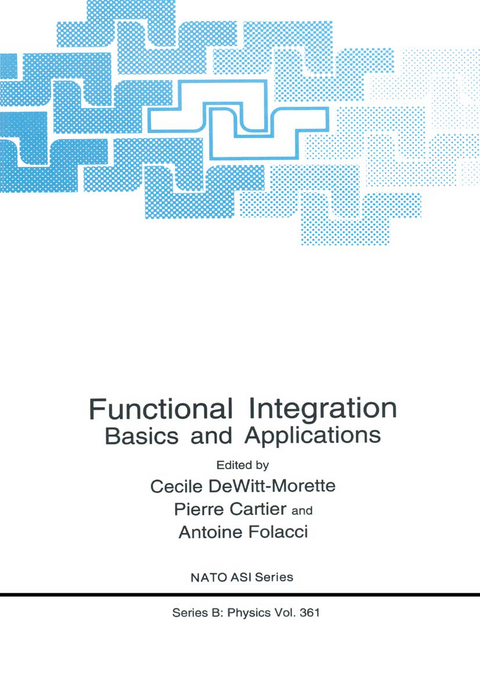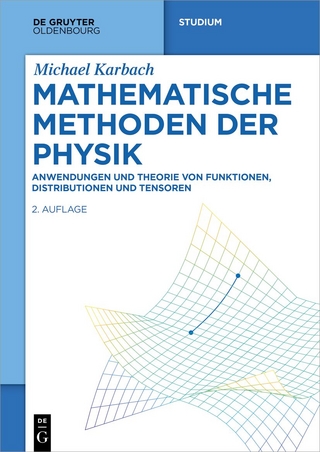
Functional Integration
Kluwer Academic/Plenum Publishers (Verlag)
978-0-306-45617-6 (ISBN)
The program of the Institute covered several aspects of functional integration -from a robust mathematical foundation to many applications, heuristic and rigorous, in mathematics, physics, and chemistry. It included analytic and numerical computational techniques. One of the goals was to encourage cross-fertilization between these various aspects and disciplines. The first week was focused on quantum and classical systems with a finite number of degrees of freedom; the second week on field theories. During the first week the basic course, given by P. Cartier, was a presentation of a recent rigorous approach to functional integration which does not resort to discretization, nor to analytic continuation. It provides a definition of functional integrals simpler and more powerful than the original ones. Could this approach accommodate the works presented by the other lecturers? Although much remains to be done before answering "Yes," there seems to be no major obstacle along the road. The other courses taught during the first week presented: a) a solid introduction to functional numerical techniques (A. Sokal) and their applications to functional integrals encountered in chemistry (N. Makri). b) integrals based on Poisson processes and their applications to wave propagation (S. K. Foong), in particular a wave-restorer or wave-designer algorithm yielding the initial wave profile when one can only observe its distortion through a dissipative medium. c) the formulation of a quantum equivalence principle (H. Kleinert) which. given the flat space theory, yields a well-defined quantum theory in spaces with curvature and torsion.
1. A Rigorous Mathematical Foundation of Functional Integration.- 2. Physics on and near Caustics.- 3. Quantum Equivalence Principle.- 4. Variational Perturbation Theory for Path Integrals.- 5. Functional Integration and Wave Propagation.- 6. Monte Carlo Methods in Statistical Mechanics: Foundations and New Algorithms.- 7. Path Integral Simulation of Long-Time Dynamics in Quantum Dissipative Systems.- 8. Développements Récents sur les Groupes de Tresses Applications à la Topologie et à l’Algèbre.- 9. An Introduction to Knot Theory and Functional Integrals.- 10. Locally Self-Avoiding Walks.- 11. Gauge Theory without Ghosts.- 12. Localization and Diagonalization: A Review of Functional Integral Techniques for Low-Dimensional Gauge Theories and Topological Field Theories.- Participants Contributions by Title and Abstract.- List of Participants.
| Erscheint lt. Verlag | 30.9.1997 |
|---|---|
| Reihe/Serie | NATO Science Series: B ; 361 |
| Zusatzinfo | X, 431 p. |
| Verlagsort | New York |
| Sprache | englisch |
| Maße | 178 x 254 mm |
| Themenwelt | Mathematik / Informatik ► Mathematik ► Angewandte Mathematik |
| Naturwissenschaften ► Chemie ► Physikalische Chemie | |
| Naturwissenschaften ► Physik / Astronomie ► Allgemeines / Lexika | |
| Naturwissenschaften ► Physik / Astronomie ► Theoretische Physik | |
| ISBN-10 | 0-306-45617-6 / 0306456176 |
| ISBN-13 | 978-0-306-45617-6 / 9780306456176 |
| Zustand | Neuware |
| Haben Sie eine Frage zum Produkt? |
aus dem Bereich


